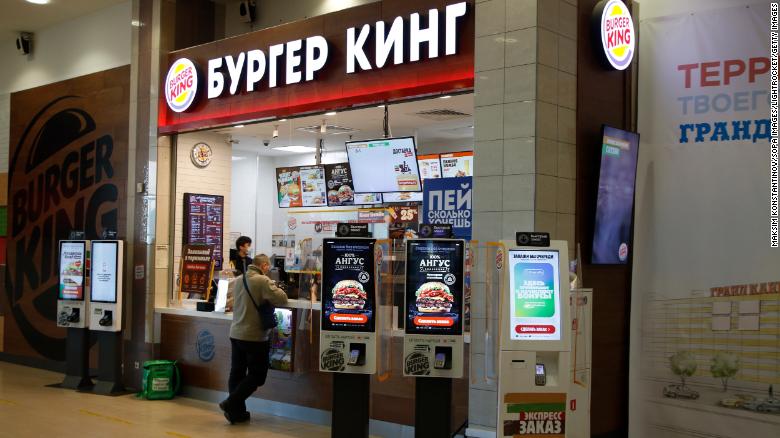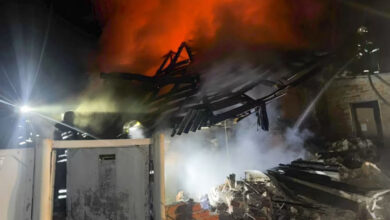
New York (CNN Business) – Burger King is trying to suspend its operations in Russia, but that’s proving difficult. A business partner controlling 800 restaurants has “refused” to close them, the company said.
The burger chain, owned by Restaurant Brands International (QSR), has a joint venture partnership with businessman Alexander Kolobov in Russia. RBI controls just 15% of its Russian Burger King business, and Kolobov is responsible for the “day-to-day operations and oversight” of its locations in the country.
That means Burger King can’t just snap its fingers and close up shop.
“We started the process to dispose [of] our ownership stake in the business,” said David Shear, president of RBI’s international operations, in an open letter. “While we would like to do this immediately, it is clear that it will take some time to do so based on the terms of our existing joint venture agreement.”
McDonald’s (MCD), by contrast, owns more than 80% of its restaurants in Russia outright. That made exiting the country significantly easier.
Shear said that RBI has “demanded” that the joint venture immediately close the Burger Kings, but Kolobov has “refused to do so.”
Burger King entered Russia about a decade ago, operating the joint venture with Kolobov, Investment Capital Ukraine and VTB Capital, a Russian bank that has been hit with sanctions.
Shear explained that a “complicated legal process” is preventing it from shutting down the partnership and businesses.
“There are no legal clauses that allow us to unilaterally change the contract or allow any one of the partners to simply walk away or overturn the entire agreement,” Shear said. “No serious investor in any industry in the world would agree to a long-term business relationship with flimsy termination clauses.”
Last week, Burger King pulled corporate support from its businesses in Russia, including suspending operations, marketing and supply chain assistance.
This issue highlights the problems some Western companies and banks face in pulling out of Russia, complicated by joint ventures or partnerships that they don’t have complete control over. For example, a Papa Johns (PZZA) franchisee in Russia refused to close about 200 locations even after the pizza chain suspended corporate support for it.




